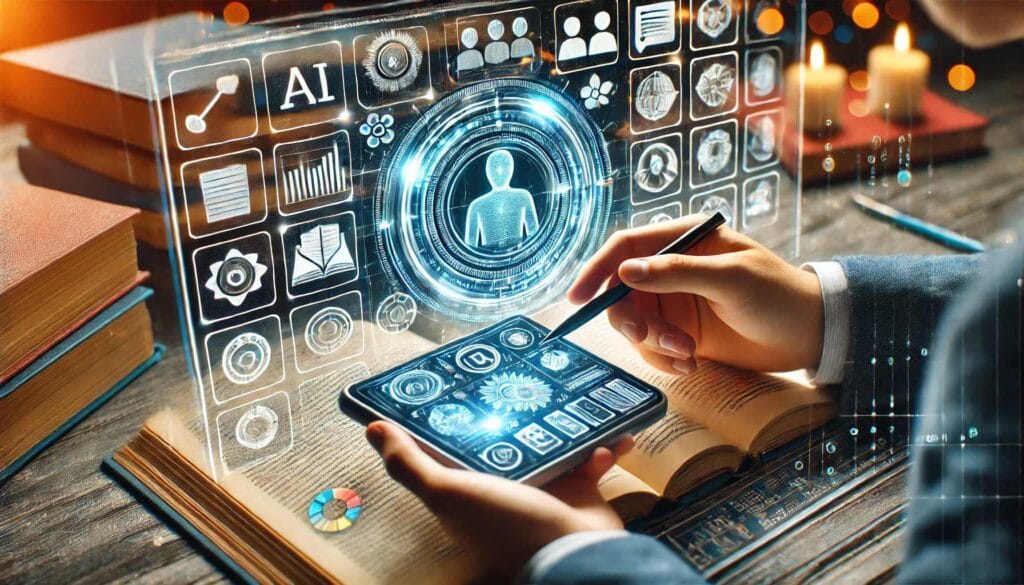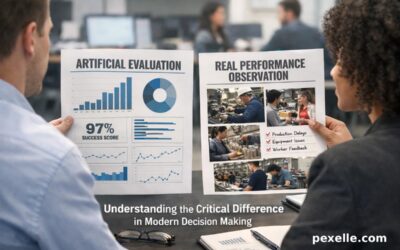The Impact of AI on Learning Personal Skills: A New Era of Growth

Artificial Intelligence (AI) is revolutionizing the way we learn and develop personal skills. As AI technologies continue to advance, they are transforming education and self-improvement, offering personalized learning experiences and redefining what it means to gain expertise. But how exactly is AI shaping our ability to master personal skills?
1. Personalized Learning Paths
AI-powered platforms can tailor educational content to each individual’s strengths, weaknesses, and learning style. Instead of following a one-size-fits-all curriculum, learners can engage with material that adapts to their pace and preferences. This personalization enhances motivation, engagement, and comprehension, making skill acquisition more efficient and effective.
For instance, language learning apps like Duolingo use AI to adjust lessons based on a user’s progress, ensuring they are neither too easy nor too challenging. Similarly, AI-driven coaching tools can provide real-time feedback to improve communication skills or offer strategic insights for critical thinking.
2. Instant Feedback and Skill Assessment
AI systems are capable of providing instant, detailed feedback that traditional methods often lack. In areas like writing, public speaking, or even sports, AI can analyze performance and highlight areas for improvement. Tools like Grammarly, for example, not only correct grammatical errors but also enhance a writer’s style and tone, contributing to better communication skills over time.
This immediate feedback loop accelerates the learning process and helps individuals correct mistakes before they become ingrained habits.
3. Simulating Real-World Scenarios
AI-powered simulations and virtual environments can replicate real-world challenges, allowing learners to practice and develop skills in a controlled setting. For example, AI-based negotiation simulators help people improve their persuasion techniques by offering realistic scenarios where they can test different strategies. Similarly, VR and AR platforms use AI to simulate complex situations for skill development in fields such as medicine or engineering.
These immersive experiences provide hands-on practice, boosting confidence and preparedness for real-life applications.
4. Access to Expertise
AI democratizes access to high-quality education and expert knowledge. Platforms like Coursera and LinkedIn Learning use AI to recommend courses based on career goals and interests, making professional development more accessible. AI tutors can break down complex concepts into digestible parts, making it easier for learners to master challenging subjects.
Moreover, AI can analyze vast amounts of data to identify emerging skills in the job market, guiding individuals toward in-demand expertise.
5. Focus on Soft Skills
While AI can teach technical skills efficiently, it is also increasingly used to develop soft skills like emotional intelligence and leadership. AI-driven platforms offer role-playing exercises and interactive modules to help users practice empathy, active listening, and conflict resolution. These skills, which are crucial in the workplace, are now more approachable thanks to technology.
For example, AI mentors can provide guidance on navigating difficult conversations, improving the user’s confidence and communication abilities.
Challenges and Considerations
Despite the benefits, relying on AI for personal skill development is not without its challenges. There is a risk of overdependence on technology, and AI may struggle to replicate the nuances of human experience, especially in areas requiring deep emotional understanding. Additionally, ethical concerns about data privacy and bias in AI algorithms must be addressed to ensure fair and equitable access to learning opportunities.
Conclusion
AI has the potential to transform how we learn personal skills, offering unprecedented opportunities for personalized education, real-time feedback, and immersive practice. However, as we embrace these advancements, it is essential to balance AI’s capabilities with human insight and creativity. The future of skill development lies in a harmonious collaboration between humans and technology, unlocking new possibilities for growth and achievement.
Source : Medium.com




